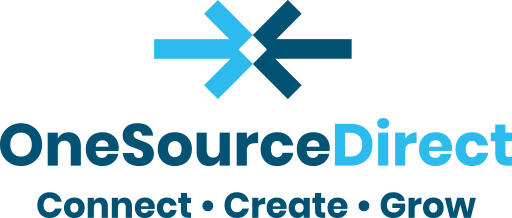Online Ad Space Competition
With more than 22 million online global customers searching for products and services daily, e-commerce has become widely used for buying and selling products and services over the Internet.
In a world where almost 70% of digital advertising spend is divided between Facebook, Google, and Amazon, the prospect of those platforms being the best viable channels for your business may feel like an insurmountable challenge.
According to leading venture firms such as Andreessen Horowitz, at a minimum, the total cost amount that a customer spends during their relationship as a customer at your business (customer lifetime value) needs to be three times greater than the cost of getting that customer on board (customer acquisition cost).
With the largest social media platforms having limited prime advertising space available and more businesses competing for the same space, the cost to get a customer through the doors is inadvertently driven up.
Even if big tech social media platforms work for your business, platform-based risks come with depending on these types of advertising models as it’s always a possibility that these companies change their advertising or algorithm models down the road.
Never has the need been greater to find alternative, profitable distribution channels for getting your product and messaging out there.
Can you build a business without Social Media?
According to pew research, today, around seven-in-ten Americans use social media to connect and entertain, engage with news content, and share information, however, utilizing these websites and apps for a business is not the same as using them for personal profiles.
Whilst a social media business profile may be free to register for, the simple rule is that big tech social media platforms are privately owned corporations that run the business to make money, not to provide a free service.
If you’re a small business that isn’t receiving much customer traffic through social media, despite what experts may report, social media isn’t the only place to grow your business.
3 ways to socially market your products or services without social media
1. Encourage your existing customers to refer their friends.
You’ve likely heard about 2-4-1 offers or refer-a-friend discounts. Why not step it up a notch? B2B Small business community platform, One Source Direct is currently offering customers that refer 3 people that sign up a 25% membership discount on their monthly subscription. One Source Direct is a simple yet powerful small business resource designed for entrepreneurs, small business owners, freelancers, and anyone wanting to expand their circle of online influence. As a small business owner, whether your objective is as simple as looking for office supplies, or sending out a company newsletter, the One Source Direct platform helps you to receive lead traffic online without the need for a website, or a network of social followers.
2. Give the client who spreads the most word-of-mouth about your business each month a private VIP experience.
When customers are happy, they spread the word. According to KPMG, loyal customers have a higher lifetime value (LTV or CLV) than occasional customers. Rewarding loyal customers by offering a VIP program is an incentive for long-term business. VIP Programs can take many forms, though typically, the offer is either a points system of rewards for money off your next purchase, coupons or free merchandise. VIP rewards can also be an experience, such as the opportunity to attend an event or to meet an ambassador of your company.
3. Get people talking about you through giving.
Put your customer at the center of your experience by giving. Buy $50-$75 worth of coffee at your local café and ask the barista to give them to the customers that present your business card. Or, for online customers, give away digital coffee house vouchers to your loyal customers. And it doesn’t have to be a coffee, what’s important is to show your loyal customers, an act of kindness that they can talk about and share with others.
How can I sell more products or services without a website?
Our friend Anabel is a seamstress that in her spare time makes handmade furry friend gifts for pet owners. As friends and colleagues clamor to buy the furry toys as gifts for their dogs, cats, horses, and mini donkeys, they encourage Anabel to try selling them online.
Anabel speaks to a friend of hers who is a developer and she begins to learn a lot of new terms like web hosting, domain, SEO, and more. A little online research reveals how long it will take and how expensive it will be for Anabel to start a website. Anabel decides that developing a website is out of her reach, and gives up on the idea.
This scenario is all too common for at-home Flexi workers who dream of starting a website but have neither the time nor the budget to do so.
The good news is that you do not necessarily need to create a website to sell your products or services to an online audience.
Here are 3 ways that Anabel could generate a large customer base without a large website expenditure.
Local Podcast
A Podcast offers a wide range of content opportunities which for a small business owner can be beneficial, particularly when trying to balance numerous tasks at any given time. The benefits of a Podcast could be said to be similar to a blog on a website as it allows you to communicate your knowledge and expertise and hence, build your credibility. Through a Podcast, a local business owner can speak directly into the ears of their local customers and therefore communicate in a powerful and personal way. For example, Local First Podcast connects local businesses to their communities. Even if you’re not an experienced interview guest or know nothing about podcasting, your voice adds a human element to your business that digital text on a website may not convey. You can also use the Podcast to directly share with the audience how and where they can make a product or service purchase.
Influencer revenue sharing
If you’re a small business that needs to have an online presence, there are plenty of marketers out there that have established social medial audiences that you can build mutually beneficial relationships. To encourage influencers to engage with the industry or products or services that you offer, look to align with influencers whose website and social media posts align with your industry.
Community Networks
Joining a small business community is a really good idea when it comes to building an audience as it will deepen your relationship with your audience and mean they are much more likely to buy from you. Similar to a ready-made directory of prospects and customers, joining a small business community network will help you to engage with paying customers and begin to build relationships.





